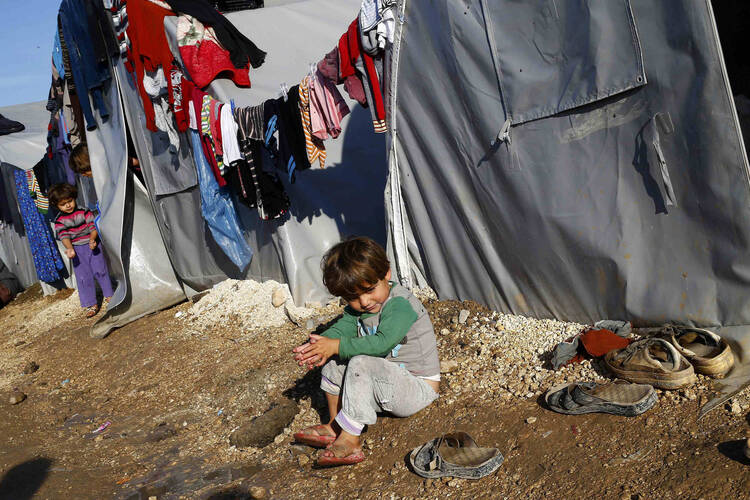The cold-heartedness demonstrated in the ongoing conflicts in the Middle East is like a bitter winter that seems like it will never end, said Pope Francis.
"The earth in those regions has been furrowed by the steps of those seeking refuge and irrigated by the blood of many men and women, among them numerous Christians persecuted for their faith," he told a group of donor agencies that assist Eastern churches.
"This is the daily experience of the sons and daughters of the Eastern churches and their pastors, who share the sufferings with many other people," he told the group June 15.
The papal audience was the first item on the agenda of the assembly of the agencies, known by the Italian acronym ROACO, who coordinate their efforts under the auspices of the Congregation for Eastern Churches. The U.S.-based Catholic Near East Welfare Association (CNEWA) and Pontifical Mission for Palestine were among the agencies represented at the June 15-17 meeting.
Referring to the suffering in the Middle East, the pope told the agencies' representatives that the "drama of these months" seems to have "jolted" the world's conscience and "opened its eyes" to the 2,000-year presence of Christians in the region. He noted the increase in aid programs for persecuted Christians and "other innocent people unjustly struck by violence."
However, he said, greater effort is needed to "eliminate" what seem to be "tacit agreements" that place financial interests in petroleum and arms before people. "And while peace and justice are being proclaimed, traffickers of death in those lands are tolerated," he added.
He urged the agencies to denounce "that which tramples human dignity" as they continue their charitable work.
Reflecting on his trip to the Holy Land last year, the pope said, "We had all hoped that the seed of reconciliation would have produced more fruit."
Participants at the assembly were expected to determine their priorities for aiding the Eastern churches.
As in previous years, their discussions were expected to focus on the ongoing violence in Syria and Iraq and its impact on Christian communities.
Additionally, one session was to focus on the Armenian Catholic Church during this centenary of the Armenian genocide. Another session was to focus on the Ethiopian and Eritrean churches; the latter was recently made a metropolitan church by Pope Francis. The leaders of each of these churches, including the recently named Ethiopian Cardinal Berhaneyesus Souraphiel Addis Ababa, were present.
During the audience, the pope said outreach to youths in the Ethiopian and Eritrean churches would help to "stem the migration flow" of young people, who risk their lives trying to cross the Mediterranean.
Discussions were also to include the situation of the church in the Holy Land and the work done with the funds raised through the annual Good Friday Collection.
Cardinal Leonardo Sandri, prefect of the Congregation for Eastern Churches, was expected to celebrate Mass for participants in the historic Ethiopian church of St. Stephen of the Abyssinians; it is the oldest-standing church within the Vatican walls.








